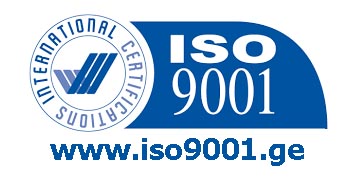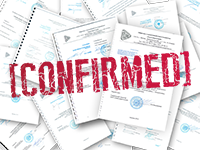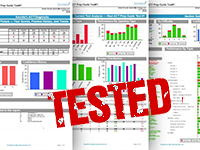Why ISO 9001?
ISO 9000 - a series of international standards, which describe the requirements for a quality management system of organizations and enterprises.
ISO 9000 series of standards developed by the Technical Committee 176 (TC 176) of the International Organization for Standardization. The standards are based on the ideas and positions of the theory of total quality management (TQM).
Compliance with ISO 9001: 2015 demonstrates a certain level of reliability of the provider and the quality factor of his company. From the point of view of modern companies, compliance with the requirements of ISO 9001: 2015 - the minimum level, which makes it possible to enter the market.
About ISO 9001:2015
In September 2015 the International Organization for Standardization ISO has released the fifth version of the standard ISO 9001: 2015 "Quality Management Systems. Requirements. "
We will help you to obtain an ISO 9001: 2015, which confirms the high level management of your company, your customers are attracted.
ISO 9001: 2015 is significantly different from its previous version, both in structure and content. Therefore it is better to start lead of the quality management system in compliance with the updated standard as soon as possible.
ISO 9001: 2015 provides a high degree of organization of the system of internal business processes, evaluation of potential risks associated with external and internal factors, giving you more opportunities for successful participation in tenders.
About ISO 22000
ISO 22000: 2005 "Management Systems in the field of food safety and food products - Requirements for any organization in the supply chain," it was published by the International Organization for Standardization ISO in 2005. This is the first international standard on the basis of which it is possible to introduce and certify the safety management system of food production. In it addressed issues of information, control and monitoring of risks for food security.
The development of ISO 22000 made it possible to reconcile the requirements of the HACCP system to the requirements of international management system standards, eg in the field of quality management system standard ISO 9001.
Technical Specifications (TS)
Technical Specifications (TS) developed an interested party (by the manufacturer, associations of undertakings), depending on the specific products are consistent with different civil service (Ministry of Health, Derzhbud et al.). Since the introduction of EU Directives, any producer himself has the right to develop technical specifications. Now the manufacturer is solely responsible for the safety and quality of products.
Our expert organizations develop Technical Specifications for the order.
Tests
We have the ability to test production of food, construction, electrical engineering, mechanical engineering, chemical, electronic, metallurgical and other industries. Tests are divided into: certification; production testing: research, sample, periodicals, acceptance, acceptance, qualification; tests carried out for the purpose of quality control; arbitration measurements - carried out repeatedly within a limited range of climatic parameters; control of compliance with technical standards; others.


